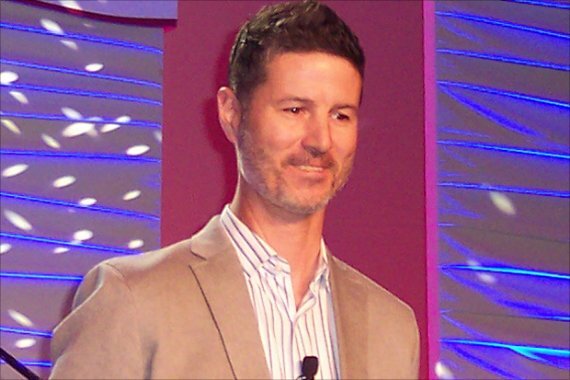
"In our industry there is a lot of change happening," said Dave DeFazio, partner with Strategy Corp., speaking during the recent 39th Directors and CEOs Leadership Convention at Caesars Palace. "Most agree credit unions need to be more appealing to younger people, and many assume mobile services are important. If you were planning to build a branch in France, you would want to learn some French. Therefore, if you want to speak with millennials, you need to learn their language."
The four most popular social networks are Facebook, Twitter, Instagram and Snapchat. DeFazio calls these four "The Big Stream" and said they "dominate" the time people spend on their smart phones.

"Simple reimagines everyday banking tasks by studying how people consume information," DeFazio said. "Simple has highjacked the hashtag. It allows people to categorize their expenses, such as '#biz.'"
BBVA noticed what Simple was doing, and bought it, DeFazio said, adding, "Big banks are going to continue to gain relationships through mobile offerings. Many are embracing robosavers, which offer automated financial advice."
One example of a robosaver is Digit. A user attaches his or her bank account to the Digit app, which studies spending patterns and then automatically places money into an FDIC-insured savings account.
"Credit unions need to respond by creating algorithms to help people with their savings plan," he said.

DeFazio used the Starbucks app on his phone to purchase a coffee at the nearest store. "This, to me, is one of the biggest threats to our industry," he warned. "I never reach for my wallet in Starbucks. They have made us an afterthought in the transaction."

While many know Uber has disrupted the taxi industry, DeFazio pointed out the company now allows people to book a ride as business or personal, and then prepare expense reports for business users. Uber automatically connects to the person's expense app, meaning the user does not handle receipts. "Think about connecting your credit union app with expense management apps. This is something the big banks are going to copy," he urged.

"Amazon is experimenting with large consumer goods manufacturers on Amazon Dash. The Amazon Energizer button allows people to order batteries by pushing a single button. Again, this is a threat, because there is no credit union debit card involved, simply a direct connection between the consumer and Amazon."

DeFazio offered a challenge to credit unions: "If we are going to prosper, you have to be a digital leader. You must be aware of these apps and age is not an excuse. If you have a smartphone, there is no excuse."

According to Metsger, the first step to improving the exam process was to remove the calendar year requirement, which was causing unnecessary backlogs each December. Another new development on the way, he said, is that credit unions seeking to change their charter or add a SEG will be able to track those online.
"There are challenges ahead, as you know, because you face them in your personal life," Metsger said. "NCUA is working to upgrade how we deal with credit union information in our secure portal. Thieves are not just targeting Bank of America, they are targeting smaller institutions because they feel protections are lower. We are very, very concerned about cybersecurity. We are the only financial regulator that does not have third-party oversight. We want to know what is going on, and that is where I need your support. Make sure your third-parties are protecting your information and your members' information."




